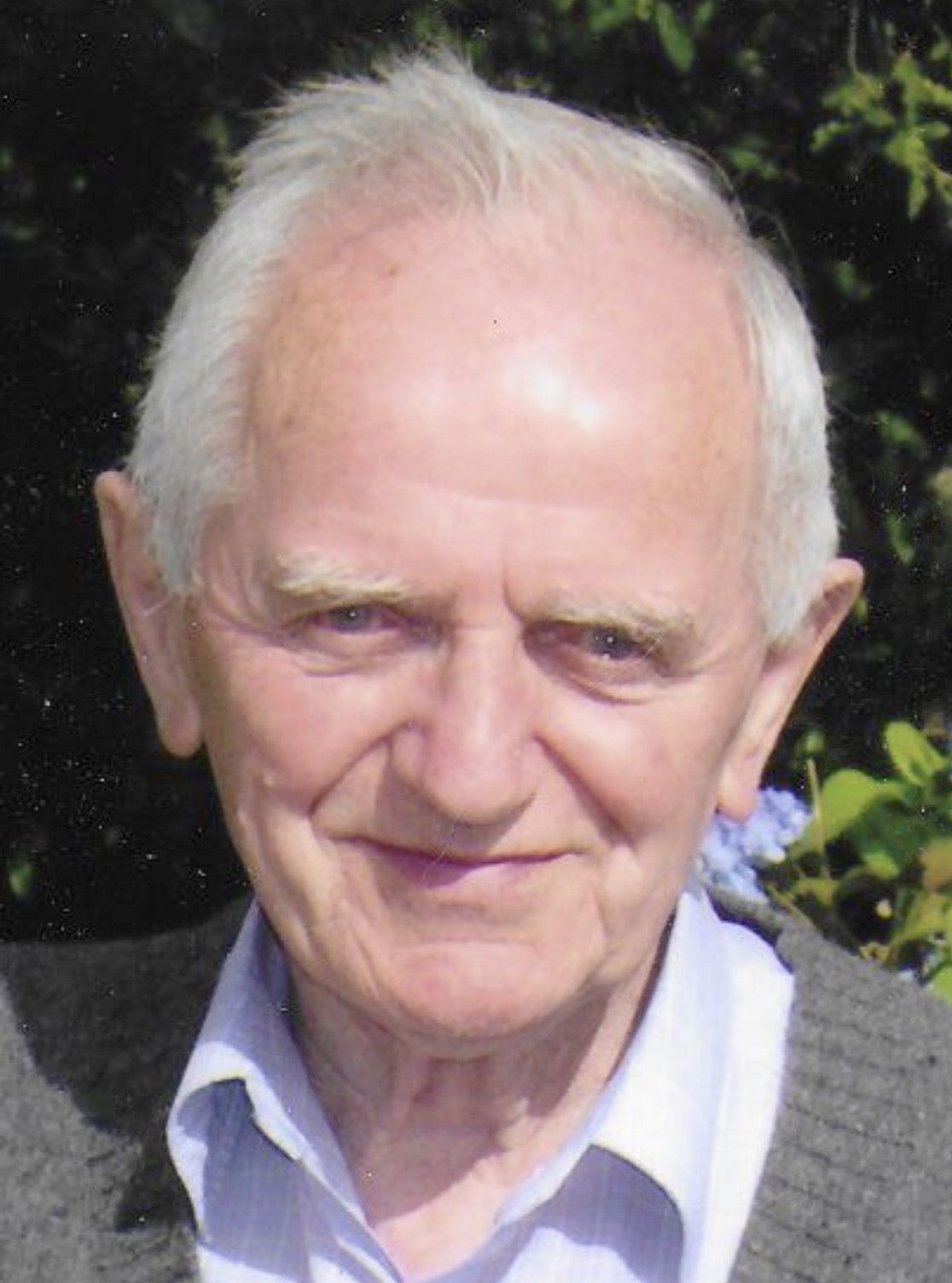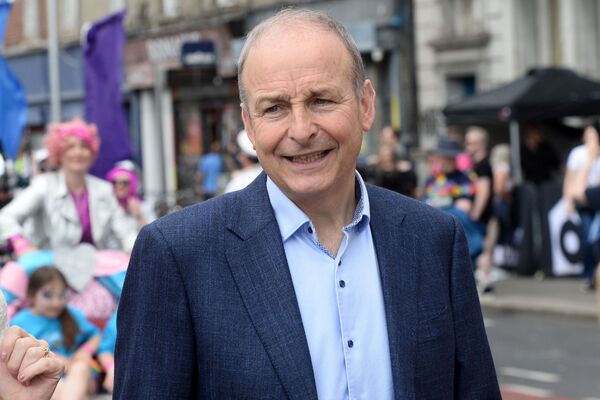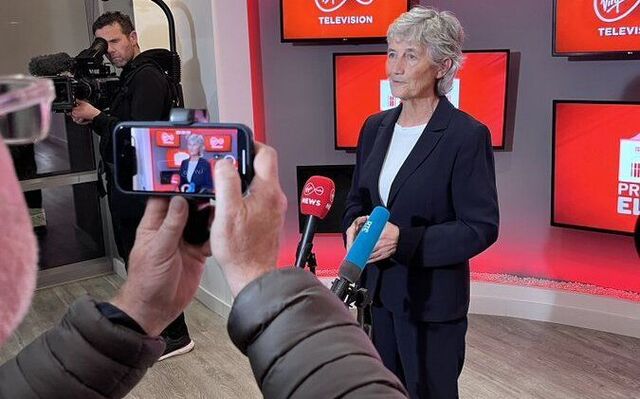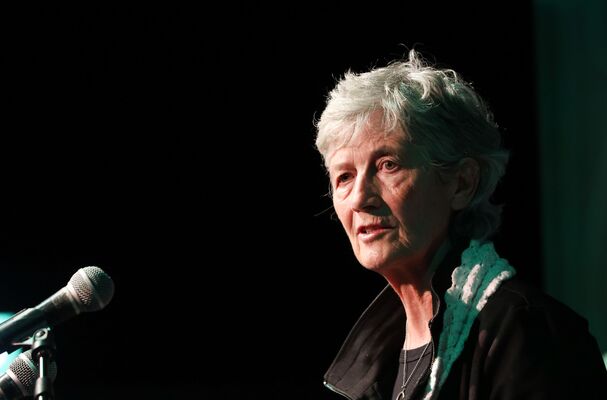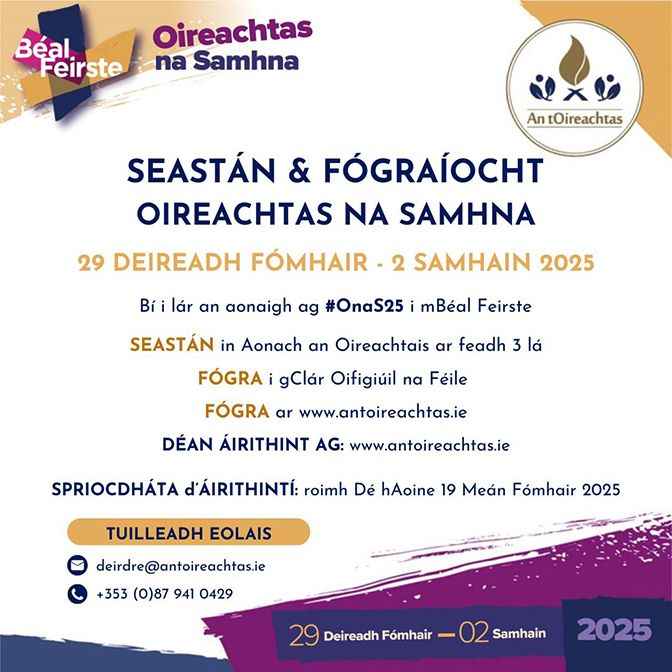CRIOSTÓIR de Baróid died two weeks ago, surrounded by his family, in Marymount Hospice in Cork where his wife Máire had died in February.
About 20 people from Ballymurphy travelled to Cork by car and train to participate in Criostóir’s funeral. They were there to pay their respects to a man who in the 1970s, along with his son Ciaran, became a part of the extended Ballymurphy family.
I met Ciaran after I was released from internment in the summer of 1972. He had arrived in the area in March to take up the job of ‘warden’ for the Ballymurphy Tenants’ Association centre on the Whiterock Road. Pat McCarthy, who had previously held the post, had been killed during the Ballymurphy Massacre in 1971.
Ciaran worked closely with Frank Cahill, who he describes as the “unofficial mayor of Ballymurphy, a man of enormous standing in the community.” Later in 1972 Criostóir came to visit his son. He was no stranger to Belfast. He was part of a voluntary group – the Association for Human Rights in the North – and was already at work here. In the summer of ’72 Criostóir’s group had provided financial and material support for a camp for young people from Ballymurphy in Glaslough, County Monaghan.
Criostóir met Frank Cahill and many of those who were deeply involved in community work in the area. As a result the Cahills and the de Baróids worked closely together over many years. Criostóir helped establish the rights group BETWEEN. Initially his aim was to help those families deeply traumatised by the introduction of internment. Some had loved ones killed. Others had been forced to leave their homes as refugees and others had one or more family members interned.
He became so embedded in the Ballymurphy area and in his efforts to help people that Criostóir took early retirement to work voluntarily. BETWEEN challenged the British state on its use of internment without trial, extra-judicial killings, the supergrass system, strip-searching in the prisons, the hunger strikes or the brutality of the British Army. But its work also went beyond these issues.
Speaking at his father’s funeral, Ciaran de Baróid explained the work of his father and of BETWEEN. He said: “Although best known as the scheme that provided respite for the families of republican and loyalist prisoners, and others under extreme stress, BETWEEN was much more than that. It was essentially an organisation that confronted oppression and injustice throughout the span of the Troubles.”
Criostóir lived and campaigned tirelessly against injustice. He was a champion for those oppressed by the British state in the North.
Ciaran Cahill put it well in a letter he wrote to Criostóir last year: “Through your work people were given hope in the darkest of times. The holiday camp provided much needed respite, joy and happiness when people were at their lowest, and re-energised them for whatever lay ahead.
“Not to mention your tireless efforts to highlight human rights abuses and injustices far and wide, many times falling on deaf ears, but you were never deterred, and forged ahead.
“I’ve lost count of the number of people who still talk about the time they spent in Cork as children and how they were treated by the good people of Cork.
“This will remain with them forever…”
On behalf of all of those from Ballymurphy and beyond who benefited over many decades from Criostóir’s compassion and humanity, I want to extend by deepest condolences to Ciaran, Niall, Fionnuala, Emer, Cahil and Neasa and to Criostóir’s sisters Joan and Kay.
My first remote conference was a vibrant one
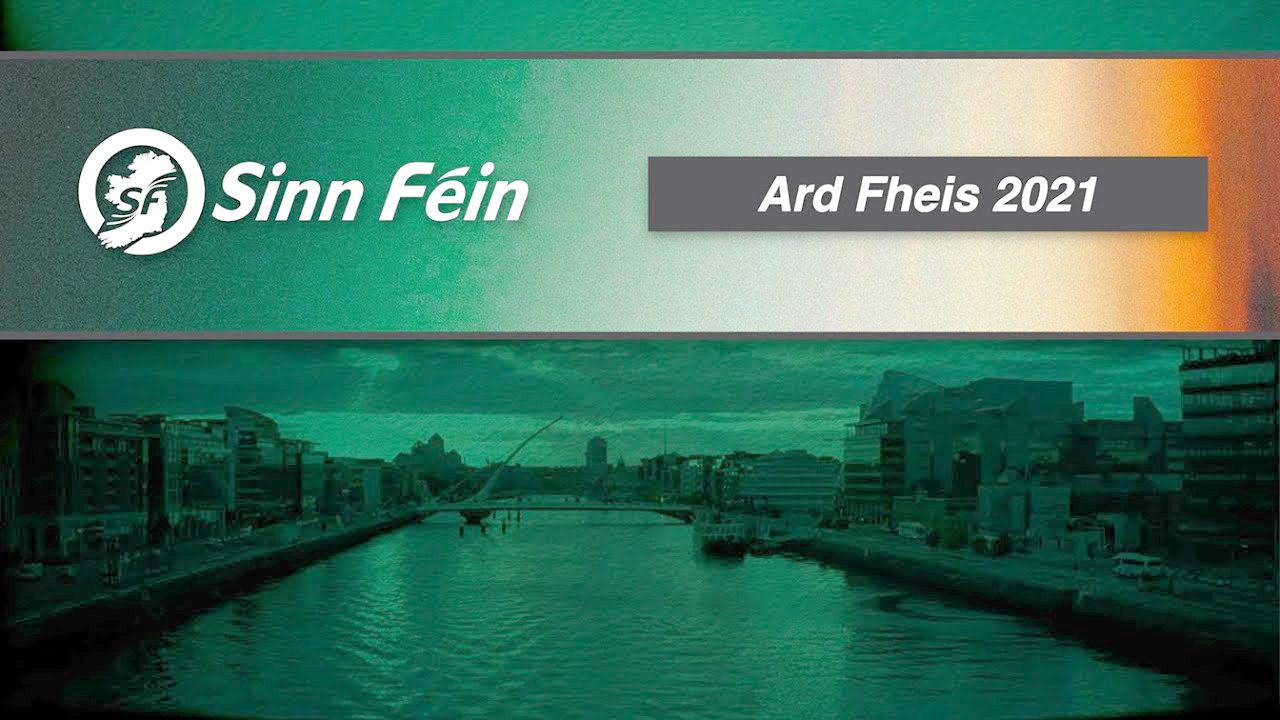
APART from those years when I was imprisoned, I have attended every Sinn Féin Ard Fheis since 1967. That is until last Saturday.
However, through the marvels of modern technology I was only missing in body not in spirit. I watched the day’s debates live online.
I don’t know if it was the consistently good opinion poll results over recent months that had people in good form or the fact that they were getting together under one roof for the first time in two years, but the Ard Fheis was buzzing. There were smiles everywhere. Everyone who got up to speak was applauded – some of the older hands looked seriously embarrassed by this while the younger speakers took it all in their stride.
Well done to everyone involved in the planning of the Ard Fheis. I know from long experience how much effort goes into making it all come together on the day and how many comrades are a part of the team and the success. So comhgairdheas to everyone involved.
A united Ireland and change were the two big themes of the Ard Fheis and Mary Lou didn’t mince her words. She said it loud and clear: “I want to lead as Taoiseach if you give us that chance... we can unite our country. To make this happen we need a government that shows up for you. A government for the people and a Taoiseach that puts you and your family first – now and always. So, to those who told me – again and again – to make sure we run enough candidates at the next Dáil election. I hear you loud and clear because, friends, the time for change is now.”
Housing, Health, Climate Change and the Environment, Law and Order and the Courts were among the many positive, radical motions debated and passed. It was an all-island, all-Ireland Ard Fheis. It was international, with speakers from the Palestinian people and the people of Cuba.
Declan Kearney, the Party Chairperson, and then Mary Lou also referenced a new initiative from the party that will see ‘People’s Assemblies’ held in key locations across the island and among the diaspora. Under the theme of ‘The New Ireland is for Everyone – Have your Say’ the initiative will be island-wide and global. It will be an ambitious, 18-month long public and private consultation, open to everyone. It is due to begin in January 2022.
Everyone should have their say on the political and constitutional future of the island of Ireland. It makes sense. The unity referendum and the possibility of a united Ireland are a central part of the mainstream political discourse at this time. Barely a week passes with two of more significant contributions from academia, the media and individuals writing about, talking about Irish unity. For those old enough to remember, the People’s Assemblies idea has its roots in the Peace Commission established by Sinn Féin in January 1994 that helped contribute to the IRA cessation announced in August of that year. On that occasion five major conferences were held, one in each province – Derry, Galway, Cork and Dublin – and a fifth meeting in Belfast. 228 submissions were received from a broad range of community activists, religious groups, trade unions, women’s rights activists, Irish language and cultural rights activists, campaign groups, politicians and individuals.
So, keep an eye open for the posters and leaflets, the social media messaging, the tweets and Facebook promotions letting you know when and where these meetings will occur. And if you belong to a community group, a women’s organisaiton, a youth group, a business organisation, a farming organisation – in fact, if you have an opinion on the future of the island of Ireland, have your say. Make a submission. Come to the conferences and tell us about your vision for the future.
• RECENTLY I joined Aisling Reilly MLA in planting a tree in the memorial garden in Ballymurphy.
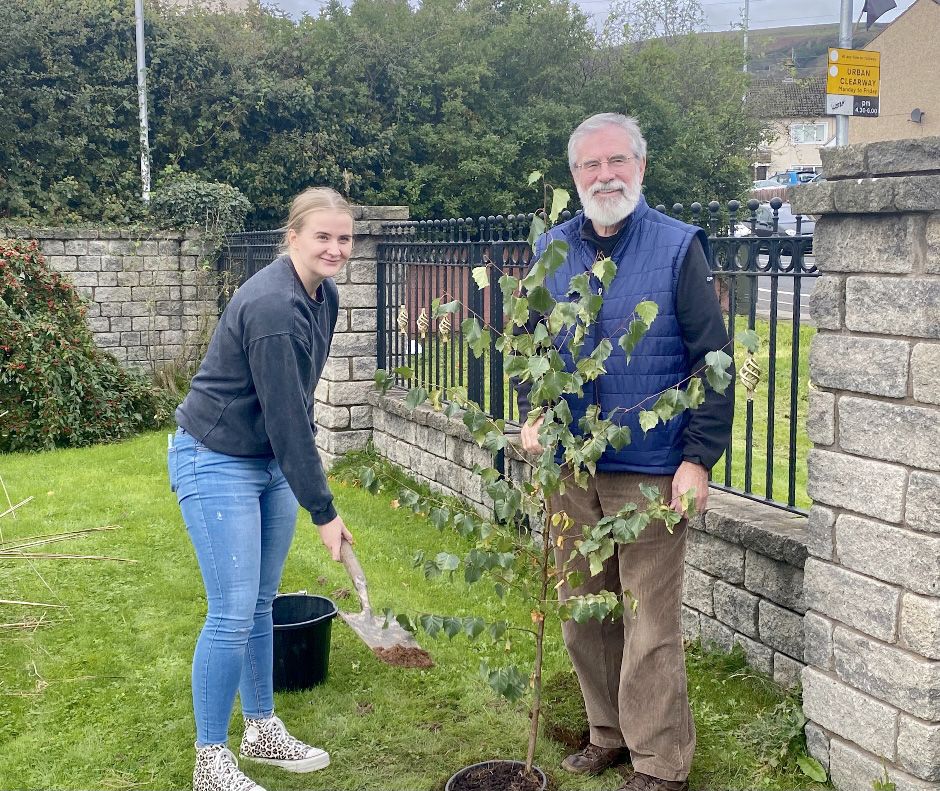
Our Unity Tree symbolises our commitment to achieving a united Ireland. I look forward to watching it grow tall in a free United Ireland.
So why don’t you join us and plant your Crann na Saoirse? Plant your own Unity Tree. Native broadleaf species are best.
This initiative will benefit the environment. It also provides families and communities the opportunity to plant a Unity Tree in memory of a loved one, for a new born baby, your local club, association or community group.
Theresa made the difference
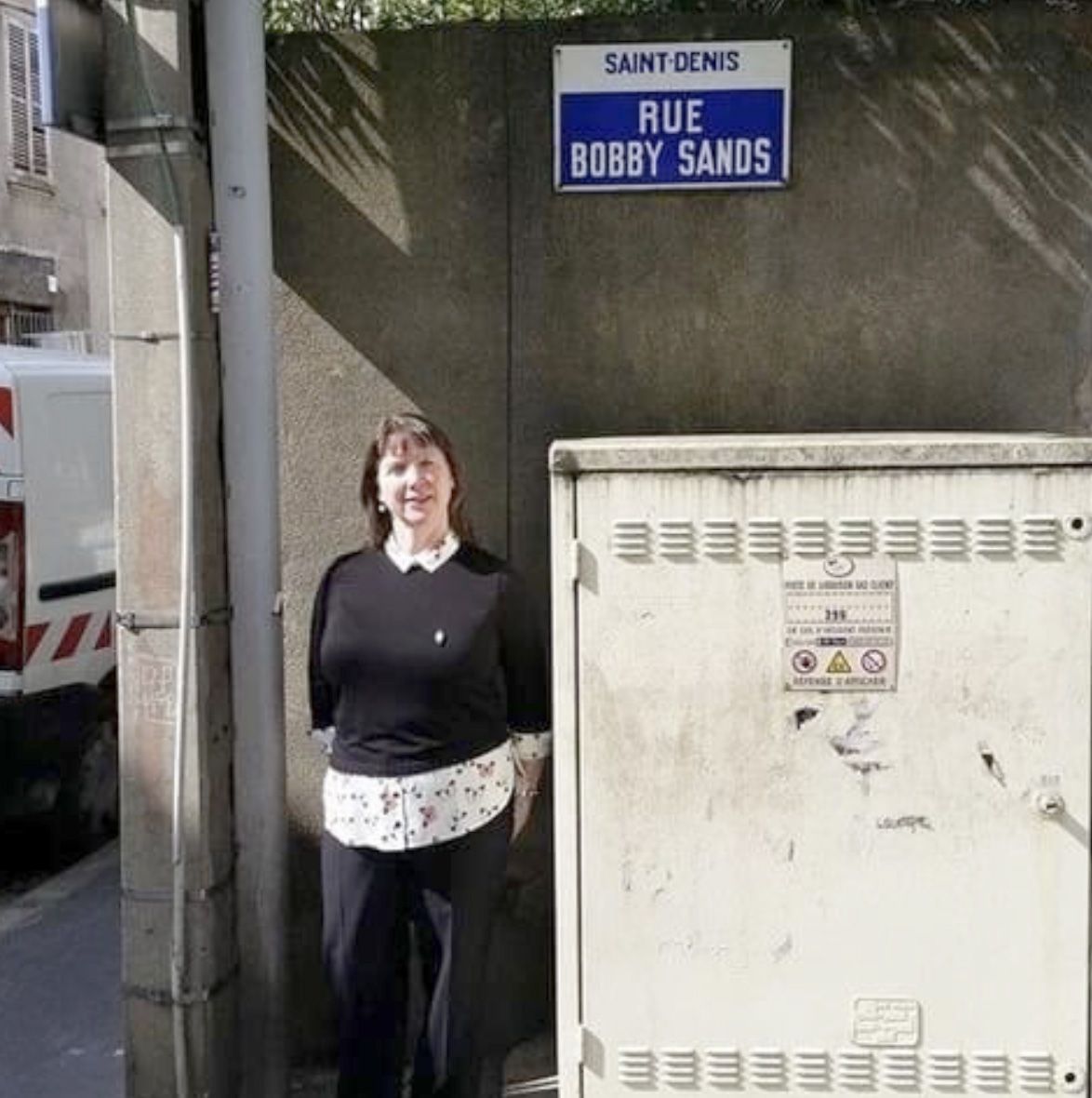
THE suddenness of Theresa McArdle’s death last week was a shock to all of us who knew and loved her. On Thursday she texted and emailed out a wee note to everyone who works in and around the Sevastopol Street office where she looked after us all.
Her note was a reminder that Cónall was leaving us to work elsewhere. It said:
“Hi all,
The card for Cónall is under the notebook on my desk. Please sign it and leave your contribution inside... Only a few have signed it so far, thank you. Ye know who you are.
Go raibh maith agaibh.
Theresa”
After we heard the news of her death I tweeted:
“Sweet, kind, pleasant, staunch Treasa. I went to the office today because she texted me to remind me to sign Cónall’s card. She left it below her notebook. I signed my name beside hers in wonderment and sorrow that she had died since then. Grma T.
“You made the difference.”
